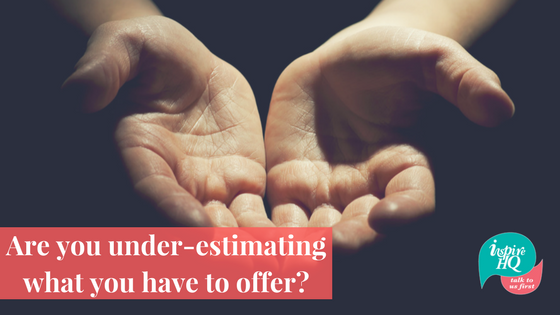If you are starting to think about changing jobs or exploring a new career the thought of having to write a resume is daunting. Especially if you haven’t had to write a resume for many years. I’ve heard great advice that you should regularly update your resume with your skills, experience and qualifications regardless of if you are looking for work, so that you basically have your resume ready, if and when you do see a job that you want to apply for. The reality is though that while that’s a great idea in theory, very few of us put the time aside to put pen to paper to keep our resumes current. We put writing our own resume off because it’s hard to do. Many of us struggle to write about our skills and expertise and what we have to offer because we under-estimate ourselves.
Resume writing is harder the longer you have been in the one job or the one organisation. In the career coaching sessions that we run at Inspire HQ we frequently hear “I just do”…. admin or reception or process claims or whatever it might be. We also often hear “I use to do that but I’ve lost that skill set.”
All too often we under estimate what it is we do in our jobs. We simply do what we do, what we know how to do, what has become second nature to us because we have done it for so long; we take for granted and under estimate our own skills and abilities because of this comfortableness we get in our jobs. Maybe you haven’t performed that task or used a skill for some period of time but it doesn’t mean you have lost it. It just means that you are a little rusty and may need a refresh but if you started performing that task again, that ability would come back to you pretty quickly.
The analogy I like to use is it’s like riding a bike. When you first learnt to ride a bike you probably started with training wheels and as you found your balance and your confidence grew the training wheels came off. Then you probably wobbled and swerved, kept putting your feet down to get your balance and then you were away. Riding your bike easily. Now if you haven’t ridden a bike for some period of time you wouldn’t say that you can’t ride a bike, you’d probably think well I haven’t done that for a long period of time but you’d be confident that after a few minutes you’d find your balance and be fine. You wouldn’t need to go through the process of having training wheels again.
The skills and experience you have gained throughout your life; through work, hobbies and interests, personal life experiences, education, volunteering are all skills that you have (some may be a little rusty) and should be in your resume. The hard part is trying to think of all these amazing skills that you have and getting them on to paper.
Where to start?
- Start simple – instead of trying to jump straight in and write your resume, take a step back and simply think about you and your skills. Once we have our list we will prioritise it, pick the skills relevant to the job we are applying for and then insert them in to our resume.
- Start with your current or most recent job. What did you do yesterday for example? Step yourself through everything you do (no matter how minor you consider it to be). List every task down one side of a piece of paper.
- Once you have the tasks down one side, look at each task individually and think about the skills required to perform that task. This is where you might find it beneficial to have someone help you. A colleague, family member, friend or even a career coach as this is where we tend to under estimate what skills it takes to perform a task.
Let me give you an example:
| Task | Skills |
| Processing the daily banking | · Attention to detail / Accuracy· Maths skills
· Time management (it has to be done by 4pm every day no matter what) |
| Answering the phone | · Customer service skills· Attention to detail/accuracy – getting people’s names and details correct
· Communication skills · Working under pressure (multiple incoming calls)
|
What you consider to be the most basic task and “just what you do in your job” requires particular skills and abilities. Creating a task and skills list like this is what I call a skills audit. Once you have done this for your current job, every previous job, volunteer work, etc you’ll have this skills audit to draw on for writing your resume, drafting a cover letter, responding to key selection criteria and preparing for an interview. It will become a critical tool for you in your job search.
Next time you need to update or start your resume from scratch, start with a skills audit to make sure you aren’t under-estimating your own abilities and taking for granted what you have to offer a potential employer.


